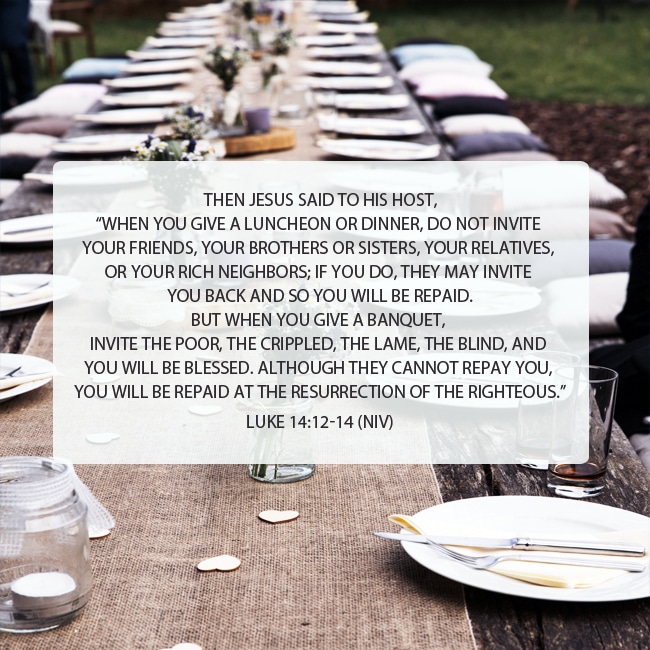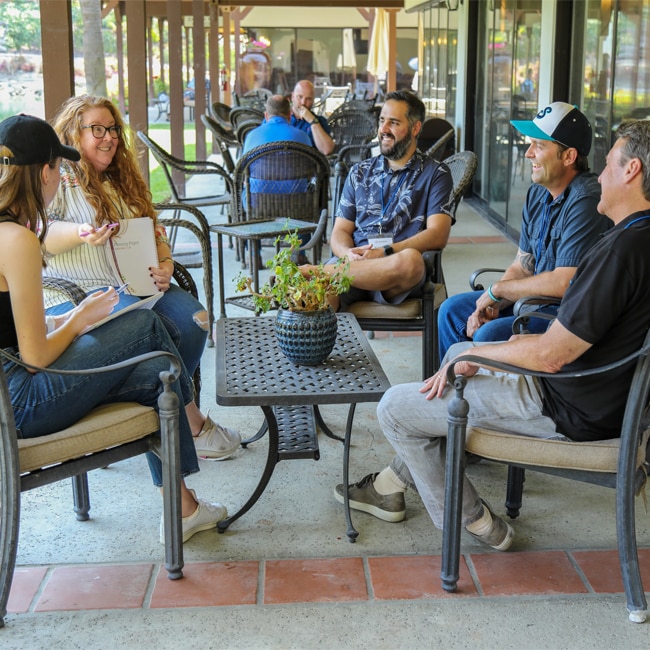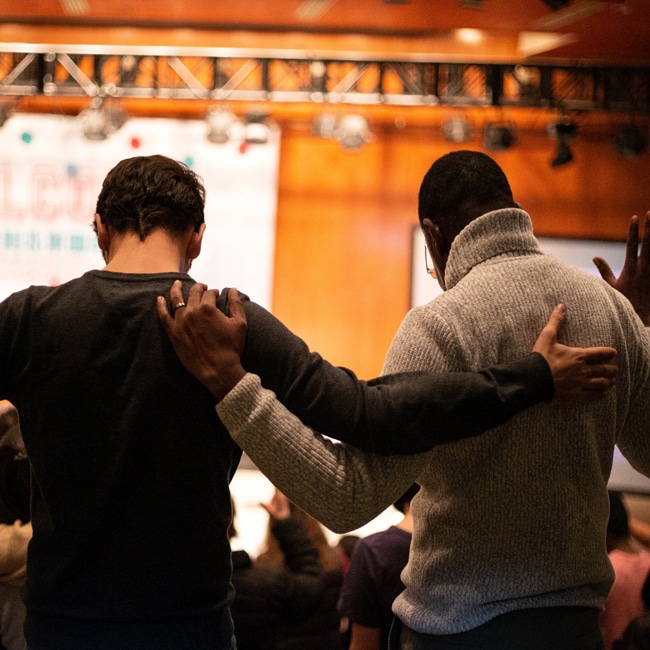The King’s Table: Why Disabilities Ministry In the Church Matters (Part 2)
The King’s Table: Why Disabilities Ministry In the Church Matters Part 2
In the last blog, we begin to examine the question of “why” have an emphasis on ministry for or with people with disabilities. We identified two primary reasons as we searched for an answer to the ever-important question of “why.” Why have disability ministries? The first and most important answer to that question was that it is an issue of obedience to Jesus. The second that we listed was that it is an issue of diversity. In this blog, we will probe a bit deeper to see if we can mine out more of the heart of Jesus towards this marginalized community.
It could be far too easy to read the previous blog and come away with a too-simple answer that does not require us to do the hard work needed in this area. Someone could read the previous blog and say, “Yes, of course, we should care for the disabled; let’s get them in church! But why do we need to emphasize ministering to them in a way that requires us to change our ministry model or format?” I’m glad you asked. You see, disabled people experience a chronic ailment. No, I’m not speaking of their disability. There is another chronic ailment that faces people with disabilities when they come into any public or institutional space: the chronic tendency to be overlooked or passed over when decisions are made.
Buildings are built, ministries are formed, legislation is passed, roads are paved, sidewalks are planned, messages are preached, and analogies are made, all without people with disabilities in mind. What’s worse is that a disabled person could even be in the room or sit at the table and still be overlooked. There’s something fundamental to the human tendency that tends to overlook the weaker body:
The inviting and bringing-in of people with disabilities means more than simply making it possible for them to be present, for attitudes and gestures may prevail that reduce people with disabilities to subjects in need of healing, passive recipients of charity, or examples to non-disabled people of those “weaker members” that Paul describes as indispensable in some way or another (1 Cor 12:22).[1]
Here’s the point that I hope is coming to the surface. Suppose we do not shape our church culture in such a way that presses us to consider the disabled in our decision-making. In that case, people with disabilities will continue to suffer from the chronic ailment of being passed over, even when they are present in our midst. Being overlooked is difficult for any person; even for an able-bodied person, it can be difficult to be passed over and ignored; plenty of able-bodied minorities understand such experiences. But for a person with a disability, such a dismissive posture from the majority population can be catastrophic.
Consider the Americans with Disabilities Act (ADA) as an example. Before the passing of this law, disabled people were not protected from discrimination when searching for employment, for public transportation, when simply walking or rolling down the sidewalk, or trying to grab a bite to eat. The world was not set up for people with disabilities, and those with the most challenging time with mobility were not granted the basic accommodations needed to cross the street simply. Why not? Often it would not inconvenience able-bodied people at all to make accommodations. Yes, in some of these spheres, accommodating a disabled person constituted a mild inconvenience or change in budget for the able-bodied world, but this accommodation meant the liberation of an entire people group.
Despite the significance of what these accommodations would have represented for disabled people, it took the force of law for the wider able-bodied majority to accommodate the significant minority of the disabled world finally. This is such a disheartening reality to think back upon.
Unfortunately, those who should have been at the forefront of the change were among the ones who fought hardest against this law being passed: we, the churches, and the broader Evangelical world. It is painful to look back upon our past and see that churches saw ADA as a budget issue that took away resources needed for “Gospel” ministry— churches were thus made exempt.[2] Did you know that? The simple point here is to demonstrate that the wider world and even (or especially?) the church requires that some institutional or cultural shift occurs that places the disabled in a position of significance for the disabled to no longer be overlooked. Will our systems and structures continue to keep them segregated from the body of Christ?
I would argue that creating a ministry for the disabled or ministering alongside disabled people— or, better, creating a place of belonging— has the potential to accomplish this desired end. It can be the shift that awakens the congregation’s heart to this often-overlooked people group. When we create a culture of ministry that prioritizes these things, it can then do what the ADA did for the broader culture. In some ways, it can lead us to— or even press us to— take seriously the needs of the marginalized and broken in our midst. It can force us to deal with the chronic human nature of dismissing broken bodies. It is not enough to affirm that disabled people should be in our churches. It is not even enough to make changes to our buildings and structures— the disabled will continue to be segregated and marginalized at the table or in the room. We must go a step beyond this to a level of belonging that forces us to take seriously the needs of our brothers and sisters in Christ. It confronts us even with a particular call to obedience that the life of Christ displays and calls for of his followers.
In the next blog, we will consider “belonging” a bit more and look at some inappropriate ways of ministry for or with disabled people. You will notice that I continually say something like “for or with” when talking about this type of ministry (e.g., “ministry for, with, alongside the disabled”). That is because this type of ministry is often considered in terms of pure benevolence by the able-bodied world, done on behalf of disabled people. What if we reframe the whole model to be one where we journey alongside and grow from our disabled brothers and sisters? In the next blog, we will explore this way of rethinking more.
[1] Thomas E. Reynolds, “Invoking Deep Access: Disability beyond Inclusion in the Church,” Dialog: A Journal of Theology 51, no. 3 (November 3, 2012): pp. 212-223, https://doi.org/10.1111/j.1540-6385.2012.00687.x.
[2] Nancy L. Eiesland, The Disabled God toward a Liberatory Theology of Disability (Abingdon Press, 1994), 74.





